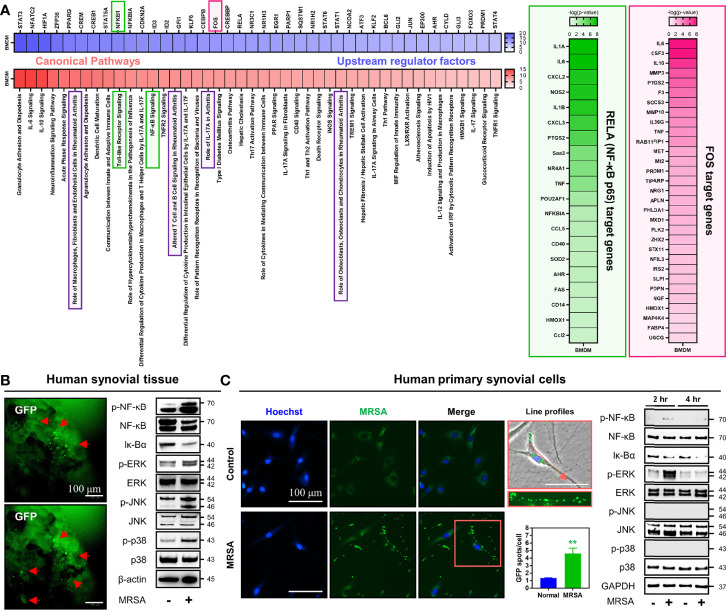Figure 3.
Infection with MRSA triggered NF-κB and MAPK signaling pathways associated with generation of immune responses, inflammation, and articular damage. (A) Transcriptome profiles were analyzed in primary BMDMs infected for four hours with MRSA using RNA-sequencing. We compared the normalized dataset with non-infected data, determined genes that were significantly increased in MRSA infection, and then analyzed canonical pathways alongside upstream regulating factors. The downstream genes regulated by NF-κB and FOS were verified and presented in the heatmap. (B) Human synovial tissue was infected with GFP-labeled MRSA (4×106 CFU) for 24 hours and GFP expression was measured as a marker for ongoing infection (Scale bar: 100 μm). The expression of p-NF-κB, NF-κB, Iκ-Bα, p-ERK, ERK, p-JNK, JNK, p-p38, and p38 in whole protein extract obtained from MRSA-infected human synovial tissue was measured; β-actin was used as a loading control. (C) Human primary synovial cells were infected with GFP-labeled MRSA (4×106 CFU) for 2 hours, at which time intracellular GFP expression was quantified (Scale bar: 100 μm). The expression of p-NF-κB, NF-κB, Iκ-Bα, p-ERK, ERK, p-JNK, JNK, p-p38, and p38 in whole protein extract derived from MRSA-infected synovial cells at two and four hours post-infection was measured; β-actin was used as a loading control. Error bars show means ± SD. Two-tailed unpaired t-test analysis was used to assess statistical significance when compared to the normal group (**p < 0.01).

